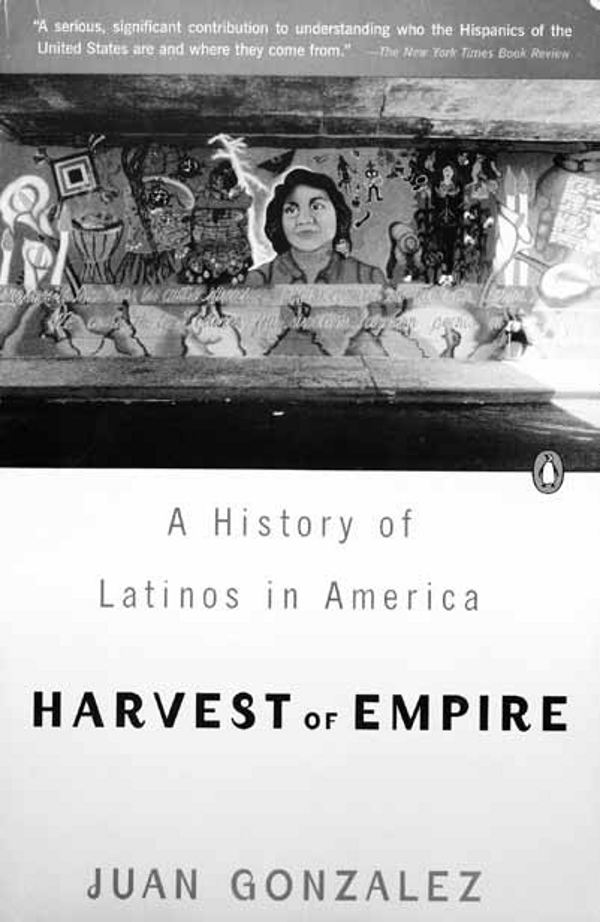
Reviewed by Chuck Parker
This is probably the best book that you could read to understand the current debate over immigration reform. It shows how the migrant flow has always been tied to the growth of the U.S. Empire in Latin America, either due to a political or military intervention (Cubans, Dominicans, Salvadorans, and Nicaraguans,) or to an economic need for cheap labor (Mexicans, Puerto Ricans, and Panamanians.) In every country it led to greater numbers of workers being forced to travel north to the U.S. to survive.
Early on, North American capitalists focused on taking land, building huge transportation projects, and importing cheap raw materials. After World War II, the emphasis shifted to moving entire industries from the U.S. to other countries. That offshore production was at the heart of the free trade model which developed in four stages in Latin America:
1) Panama and Puerto Rico (1947)
2) Mexico’s border industrialization, or maquiladoras (1965)
3) The Caribbean Basin initiative (1985) and
4) NAFTA (1994.) Instead of bringing prosperity to the region, free trade has created greater poverty and economic inequality. In Mexico, for example, real wages fell 68% between 1982 and 1992 even though productivity rose 41%. This made Mexico and the whole Caribbean region the most desirable place in the world for U.S. direct investment. But it created a nightmare for the workers in these countries, which included horrible environmental degradation and the highest rates of industrial injuries and illnesses in the world.
The book proposes these measures:
1) “End the predatory dual labor market in cheap Mexican labor.” NAFTA created a common market for goods, but not a common market for labor. A common market for labor could include cross-border labor unions or alliances, and the same environmental and labor laws in both counties. Abolishing the concept of “illegality” among Mexicans, who are overwhelming the largest source of undocumented labor, will drive up wages at the bottom of society.
2) “End the colonial status of Puerto Rico.” This tiny island has been the single greatest source of profits for U.S. corporations in the entire world! Puerto Ricans should be allowed to decide whether they will become an independent country or a state with full rights.
3)”Recognize the rights of language minorities and promote the widespread study of Spanish.”
4) “Reinvest in U.S. cities and public schools.”
5) “End the economic blockade of Cuba.”
In Juan Gonzalez’ own words, “My solutions aim directly at that all-powerful and invisible Market and the Empire we have created in its name. Immigrant labor has always been critical to the Market’s prosperity. The Market recruits it, exploits it, abuses it, divides it, then ships it back home when no longer needed. Only by taming the Market can the people of the Americas, north and south, move beyond our ethnic, racial, and linguistic divisions. Only then can we grasp our common humanity, realize our common dreams. America, after all, never did end at the Rio Grande.”
